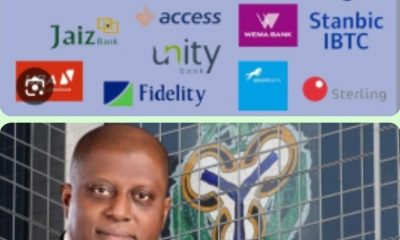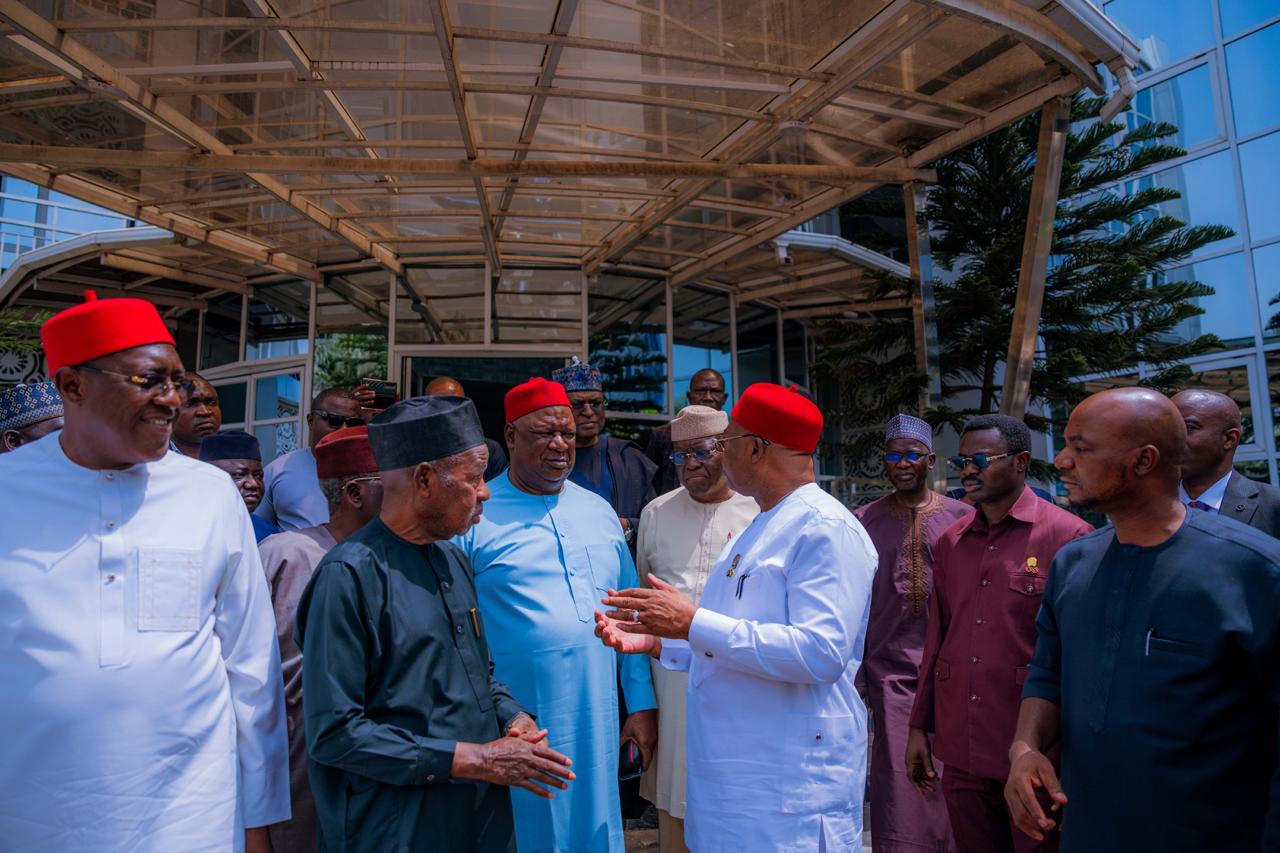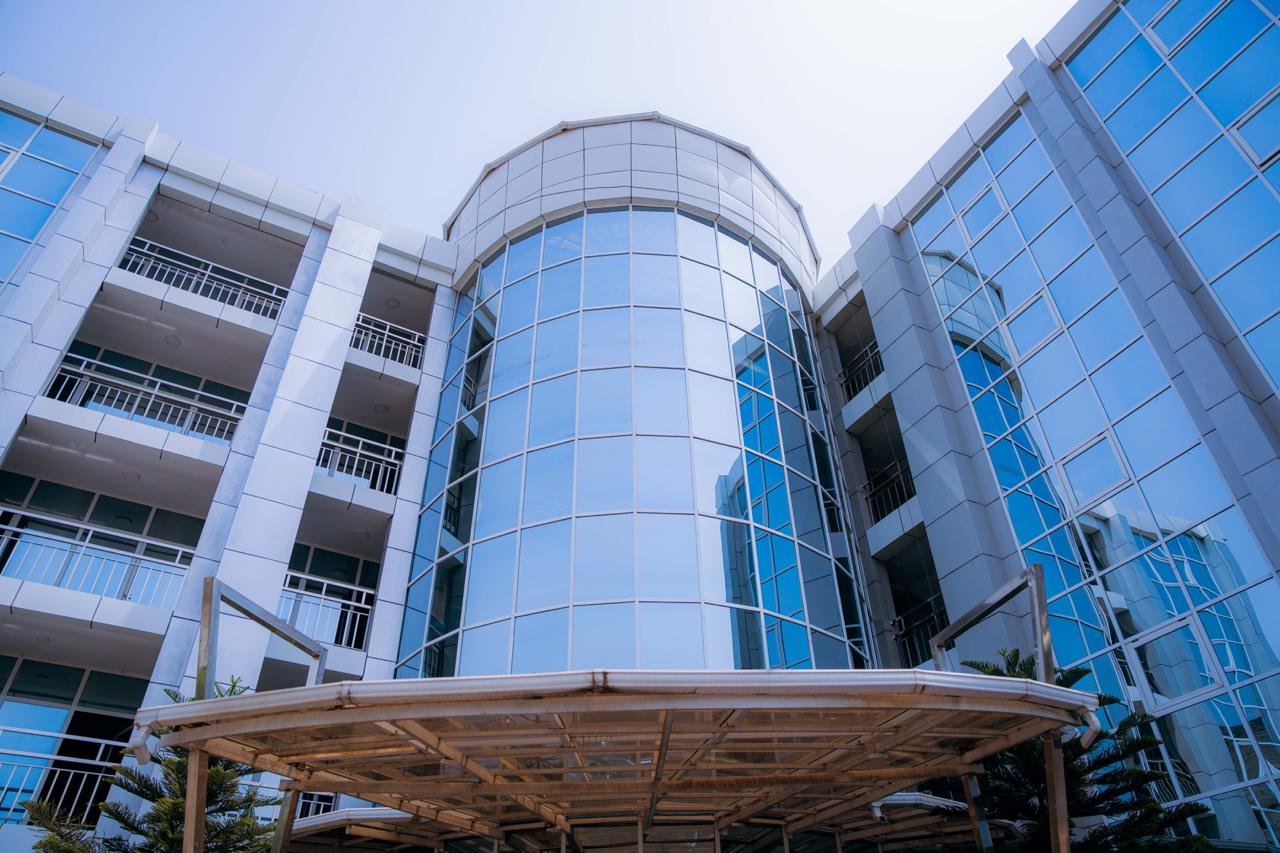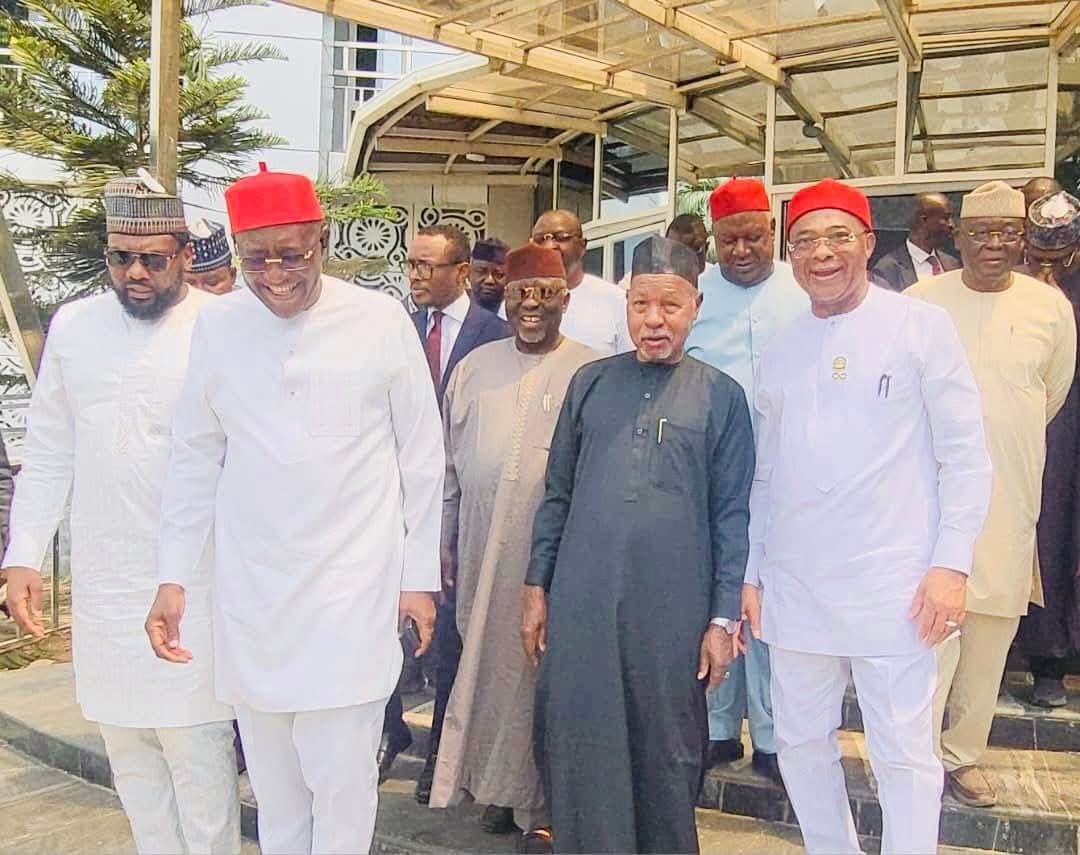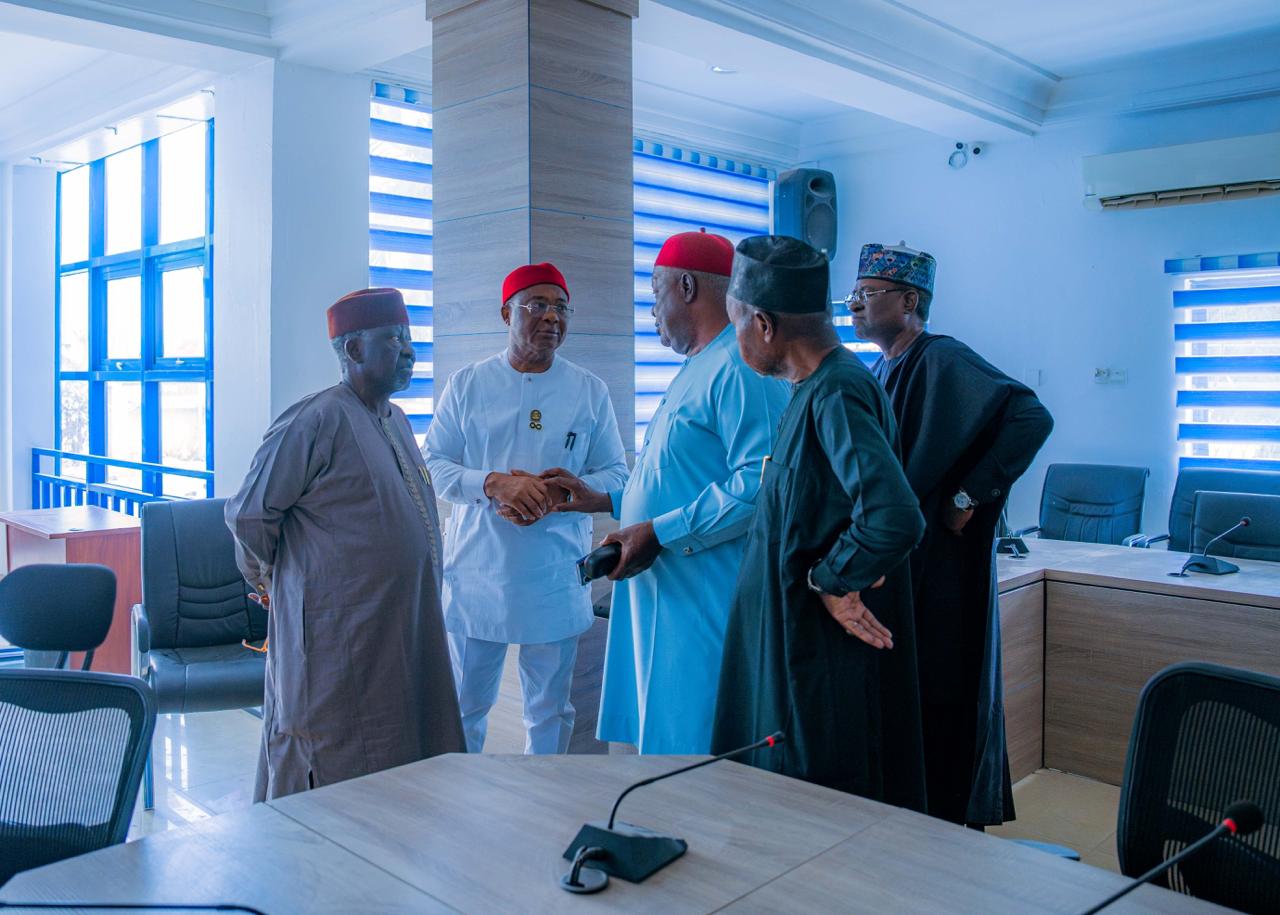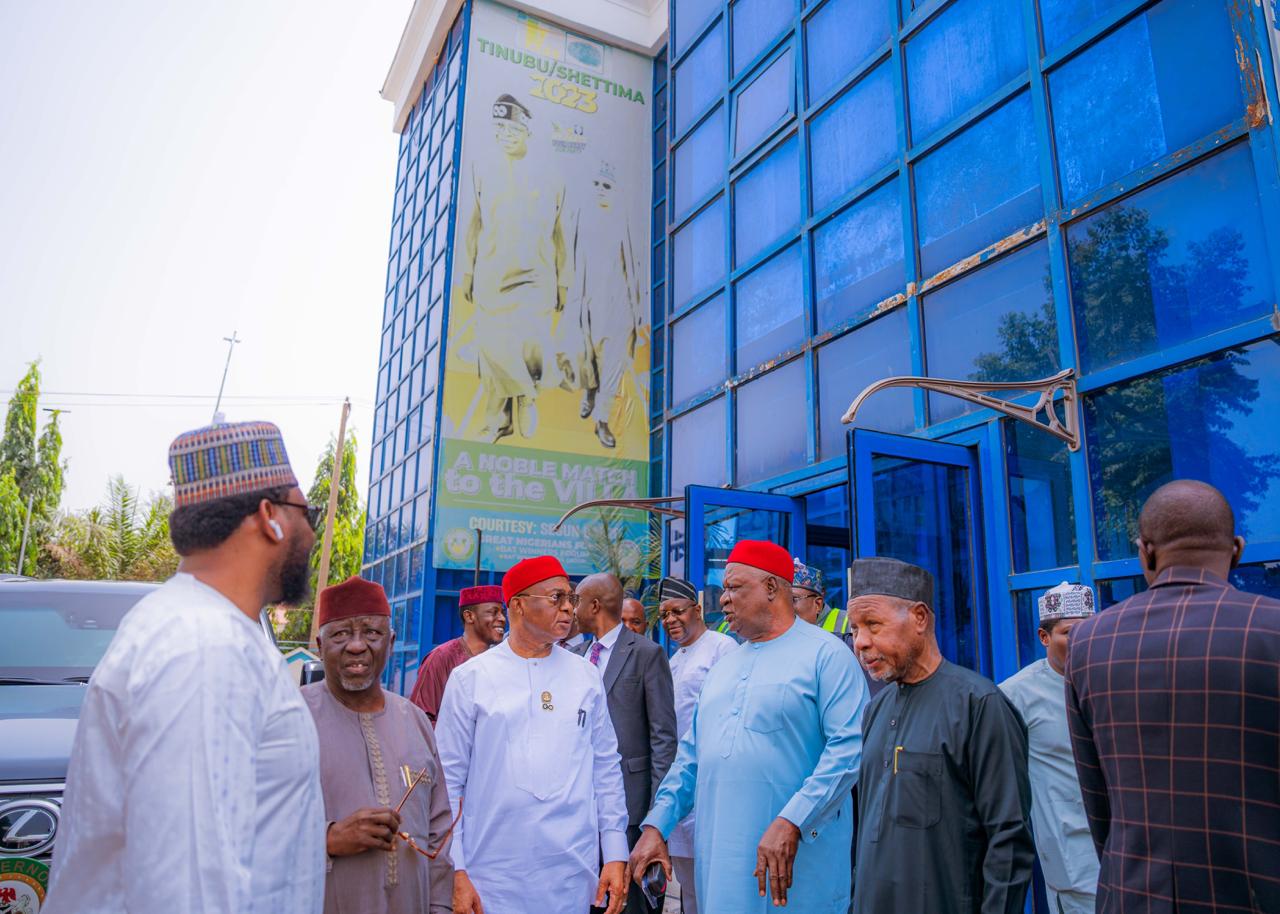A failed attempt to trigger a run on banks
As market sentiment remains highly volatile and driven by news flow, banks liquidity levels can become vulnerable due to spread of inaccurate information. As Nigerian banks put finishing touches to their recapitalisation plans as directed by the Central Bank of Nigeria (CBN), industry watchers have seen how social media mercenaries and their hirelings are deliberating distorting the truth and pushing campaigns that spread false information which could result in deposit outflows from their targeted banks.
Earlier this month when the Central Bank of Nigeria (CBN) revoked the banking licence of Heritage Bank, it gave reasons for the decision. The reason was clearly stated! “This action has become necessary due to the bank’s breach of Section 12 (1) of BOFIA, 2020. The Board and Management of the bank have not been able to improve the bank’s financial performance, a situation which constitutes a threat to financial stability,” CBN noted.
The CBN said Heritage Bank had continued to suffer and had no reasonable prospects of recovery, thereby making the revocation of the license the next necessary step.
A statement by Hakama Sidi Ali, acting Director, Corporate Communications of the CBN, said the apex bank acted in accordance with its mandate to promote a sound financial system in Nigeria and in exercise of its powers under Section 12 of the Banks and Other Financial Act, BOFIA, 2020.
Many market watchers, particularly those following developments in the banking industry did not think the CBN should have done otherwise and subsequent appointment of the Nigeria Deposit Insurance Corporation, NDIC, as the liquidator.
Mischievous ‘list’ of other banks
Shortly after the apex bank hammer fell on Heritage Bank, social media mischief makers released their own ‘list’ of other banks they felt will go the Heritage way – not minding the illegality of assuming such a regulatory position.
Thanks to Central Bank of Nigeria (CBN) for quickly debunking the fake news which had mentioned the names of other banks – Fidelity Bank, Wema Bank, Polaris Bank and Unity Bank.
“The attention of the Central Bank of Nigeria (CBN) has been drawn to some information circulating in the public domain, suggesting that the CBN is set to revoke the licenses of three additional banks following its regulatory action against Heritage Bank Plc on Monday, June 3, 2024.
“The CBN unequivocally states that these allegations are false and intended to trigger panic in the financial system. The Nigerian financial system remains safe, sound, and resilient. Our banks have begun submitting implementation plans for the Banking Sector Recapitalisation Programme in compliance with the CBN Circular reviewing the minimum capital requirements for Commercial, Merchant, and Non-Interest Banks (CMNIBs).
“These plans are currently being reviewed by the Bank. In addition to enhancing buffers to withstand economic shocks, this proactive measure by the CBN to require CMNIBs to recapitalise will result in increased capital for Nigeria’s banks, enabling them to provide much-needed credit to critical sectors of the economy. This will increase the financial system’s contribution to the growth and development of a $1 trillion Nigerian economy.
“The CBN would like to reassure all stakeholders of its unwavering commitment to ensuring the financial system’s stability. Our financial system remains on a solid footing, and the CBN will continue to take all necessary steps to maintain its safety and soundness,” said CBN’s Sidi Ali said in a June 4 statement in response to the false allegations of license withdrawals.
Fidelity Bank’s full year 2023 PBT grew by 131.5% to N124.26 billion
Fidelity Bank Plc in its 2023 full year audited financial statements reported a 131.5 percent growth in Profit Before Tax (PBT) to N124.26 billion. The results released to the investing public at the Nigerian Exchange (NGX) shows the bank grew gross earnings by 64.9 percent year-on-year (YoY) to N555.83 billion, driven by 81.6 percent growth in Net interest income which increased from N152.7billion to N277.37 billion. This led to a Profit After Tax of N99.45 billion representing a 112.9 percent annual growth.
“We closed the financial year with strong double-digit growth across key income and balance-sheet lines. Our performance in 2023 is an attestation of our capacity to deliver superior returns to shareholders despite the difficulties in our operating environment. Profit before tax grew by 131.5 percent to N124.3billion from N53.7billion in 2022FY, leading to an increase in Return on Average Equity (RoAE) of 26.5 percent from 15.6 percent in 2022FY,” said Nneka Onyeali-Ikpe, Managing Director/CEO, Fidelity Bank Plc.
A review of the bank’s financial performance showed that Fidelity Bank in 2023 grew Net interest income by 81.6 percent to N277.4bn driven by a 55.5 percent increase in interest income, thus reflecting a steady rise in asset yield throughout the year. The average funding cost dropped by 20bps to 4.4 percent due to increased low-cost funds that grew from 83.6 percent in 2022FY to 97.4 percent in 2023. The combination of higher asset yield and lower funding cost led to an increase in Net Interest Margin (NIM) of 8.1 percent from 6.3 percent in 2022FY. Similarly, Total Customer Deposits crossed the N4trillion mark as deposits grew by 55.6 percent from N2.6trillion in 2022FY. The increase was driven by 81.1 percent growth in low-cost funds.
Despite the challenging operating environment, the bank reaffirmed its devotion to helping individuals grow, inspiring businesses to thrive and empowering economies to prosper by increasing Net Loans and Advances to N3.1trillion from N2.1trillion in 2022FY.
Despite the growth in its loan portfolio, Regulatory Ratios were maintained well above the required thresholds, with liquidity ratio at 45.3 percent from 39.6 percent in 2022FY and capital adequacy ratio (CAR) at 16.2 percent compared to the minimum requirement of 15 percent.
Consistently paid dividend since 2006
Fidelity Bank has consistently paid dividend since 2006. With the final dividend of 60 kobo per share it paid for year 2023, Fidelity Bank paid investors a total dividend of 85 kobo per share for the reporting period, a 70 percent increase compared to the 50 kobo per share paid to its shareholders in 2022.
“We recognise the changing dynamics in the Nigerian banking space and the need to monitor and proactively manage evolving risks. The proposed final dividend of 60 kobo per share reflects our commitment to strong value creation and returns to our shareholders,” Onyeali-Ikpe had said ahead of the dividend payment.
Multiple local and international awards winner
Ranked as one of the best banks in Nigeria, Fidelity Bank is a full-fledged customer commercial bank with over 8.3 million customers serviced across its 251 business offices in Nigeria and the United Kingdom as well as on digital banking channels.
The bank has won multiple local and international awards including the Export Finance Bank of the Year at the 2023 BusinessDay Banks and Other Financial Institutions (BAFI) Awards, the Best Payment Solution Provider Nigeria 2023 and Best SME Bank Nigeria 2022 by the Global Banking and Finance Awards; Best Bank for SMEs in Nigeria by the Euromoney Awards for Excellence 2023; and Best Domestic Private Bank in Nigeria by the Euromoney Global Private Banking Awards 2023.
African Export-Import Bank (Afreximbank) on Monday June 10 said it has disbursed $40-million Intra-African Investment Facility to Fidelity Bank Nigeria Plc to support the bank’s acquisition and recapitalisation of Union Bank UK as part of its international expansion programme. Provided in two tranches of $20 million each, the first tranche of the facility enabled Fidelity to part-refinance the acquisition of 100 percent equity stake in Union Bank UK, while the second tranche was used to support its recapitalisation via the injection of additional equity into the acquired bank, as approved by the United Kingdom’s regulator.
With this acquisition, Fidelity Bank is able to birth a new pan-African financial institution capable of providing correspondent banking and offshore banking services to banks in Africa and servicing the banking needs of Africans in the diaspora.
Fidelity Bank’s upcoming public offer and rights issue: Good buys for investors
Just recently, Fidelity Bank Plc concluded all necessary arrangements to raise a total of up to N127.100billion by way of a Rights Issue to existing shareholders and a Public Offer (the Combined Offer).
The Combined Offer is a part of the bank’s strategy to increase its share capital base in compliance with the revised minimum capital requirements for Nigerian commercial banks introduced by the Central Bank of Nigeria (CBN) on March 28, 2024.
Overall, the Bank expects that the capital raised would support the Bank’s efforts to drive sustained growth and diversification of its earnings base.
The Signing Ceremony with respect to the Combined Offer was held at the Board Room of the headquarters of Fidelity Bank in Lagos on Wednesday June 5, 2024.
The bank’s shareholders had already approved the Rights Issue and Public Offer at the Extra-Ordinary General Meeting held on Friday, 11 August 2023. Under the Rights Issue, 3.2 billion ordinary shares of 50 kobo each will be offered in the ratio of 1 new ordinary share for every 10 ordinary shares held as of 05 January 2024, at N9.25 per share. For the Public Offer, 10 billion ordinary shares of 50 kobo each will be offered to the general investing public at N9.75 per share.
Stanbic IBTC Capital is the Lead Issuing House to the Combined Offer, whilst the Joint Issuing Houses include Iron Global Markets Limited, Cowry Asset Management Limited, Afrinvest Capital Limited, FSL Securities Limited, Futureview Financial Services Limited, Iroko Capital Market Advisory Limited, Kairos Capital Limited and Planet Capital Limited. The Acceptance and Application lists for the Rights Issue and Public Offer are expected to open on Thursday, June 20, 2024 and close on Monday July 29, 2024.
At the Signing Ceremony, Nneka Onyeali-Ikpe, Managing Director and Chief Executive Officer, Fidelity Bank Plc said that the proceeds of the Combined Offer will be applied towards investment in IT infrastructure, business and regional expansion, and investment in product distribution channels.
Oladele Sotubo, Chief Executive of Stanbic IBTC Capital commended Fidelity Bank’s management team for their commitment towards executing the Combined Offer.
He lauded their efforts for being at the forefront of achieving the CBN’s revised minimum capital requirements for Nigerian commercial banks. While thanking the Bank for trusting Stanbic IBTC Capital to lead and advise on this landmark transaction, Dele expressed confidence that the deal would encourage other corporates to tap into the equity capital markets to raise funding to meet their strategic business needs.
Fitch Ratings just affirmed Fidelity Bank’s positive future
Recently, Fitch Ratings revised the outlook on Fidelity Bank Plc Long-Term Issuer Default Rating (IDR) to positive from stable, while affirming the rating at ‘B-‘.
The credit rating agency also affirmed Fidelity Bank’s National Long-Term Rating at ‘A(nga)’ with a stable outlook. Fitch said in a statement on Friday that the outlook revision reflects its, “expectations that the bank’s capitalisation will strengthen in the near term as a result of core capital issuances, including to meet the new paid-in capital requirement of N500 billion for banks with an international licence effective by end-1Q26.”
“Fidelity’s IDRs are driven by its standalone creditworthiness, as expressed by its Viability Rating (VR) of ‘b-‘. The VR balances the concentration of operations in Nigeria’s challenging operating environment, very high credit concentration and high Stage 2 loans against a growing franchise, sound profitability metrics, good capital buffers and reasonable foreign-currency (FC) liquidity coverage.
“Fidelity’s National Ratings are driven by its standalone creditworthiness. They balance a growing franchise and good capital buffers against weaker profitability than higher rated peers,” the statement reads.
The rating agency said that Fidelity is Nigeria’s sixth-largest bank, as it accounted for 5 percent of domestic banking system assets at end-2023, adding that strong balance-sheet growth in recent years has increased bank’s market shares and that it expects these to increase further but remain below those of the five largest banking groups.
Fidelity awarded CG+ rating at NGX – the highest rank under the Corporate Governance Rating System (CGRS)
Fidelity Bank was recently awarded CG+ rating, the highest rank under the Corporate Governance Rating System (CGRS), which screens quoted companies against prescribed best practices and standards. The CG+ rating awarded to Fidelity Bank shows it complies with the highest corporate governance standards as the bank adheres promptly to all full disclosure requirements and global best practices.
Godstime Iwenekhai, Head, Listings Regulation Department, NGX Regulation (NGXRegco) said that the CGRS was designed to strengthen the governance structures of listed companies and provide a valid basis for discerning investors to differentiate between listed companies on the basis of their compliance with acceptable standards of corporate governance.
After a review of the latest compliance report which showed that Fidelity Bank sustained its highest-ranking rating of CG+, shareholders and market pundits commended the high corporate standards of the bank.
“In our view, corporate governance promotes ethical business practices, transparency and fair competition, Iwenekhai said.
He pointed out that the special character combination CG+ underlined compliance with best practices and highest corporate governance standards, which entitle the rated companies to special privileges at the stock market.
Corporate governance compliance at the stock market includes prompt submission of detailed operational results from period to period as required by the market rules, full disclosures of all material and regulated information and accurate rendition of reports and accounts.
Also, compliance includes ensuring that the company’s shares are not encumbered in a way that impinges on free float or number of shares available to the general investing public for efficient price discovery, compliance with all investor-protection safeguards in communication with shareholders and organising statutory meetings as required among others.
The Nigerian Exchange (NGX) noted that compliance tracker was aimed at maintaining market integrity and protecting the investors, noting that listed companies are required to adhere to high disclosure standards.
“Financial information which is periodic disclosure and on-going material events disclosure should be released to NGX in a timely manner to enable it efficiently perform its function of maintaining an orderly market, NGX stated, referencing some of the criteria for its corporate governance rating.
Market experts and shareholders agreed that corporate governance compliance is a major factor in deciding on investing in a public and the safety of such investment.
For stockbrokers and investors, CG+ rating reassures investors of the safety of their investments in Fidelity Bank
Olatunde Amolegbe, Managing Director, Arthur Steven Asset Management said corporate governance compliance rating is extremely important as it indicates to the investing public the quality of compliance of a company to listing requirements.
“As you know, stock prices are driven primarily by available information and the NGX has a minimum level of disclosure expected of quoted companies. This disclosure helps the public make qualitative decisions as to the state or performance of the companies they are seeking to invest in. These markers are therefore the initial indicators as to whether the companies are meeting their disclosures and other regulatory obligations or not, Amolegbe, a former president of Chartered Institute of Stockbrokers (CIS), said.
Garba Kurfi, Managing Director, APT Securities & Funds said the corporate governance rating shows the extent companies are in compliance with corporate governance.
“High rating means very good in doing right thing timely while low rating discourages foreign investors from investing in such companies, Kurfi, a leading market operator and member of the board of Securities and Exchange Commission (SEC), said.
David Adonri, Managing Director, HighCap Securities noted that CG+ means excellent corporate governance rating”. “When a company is organised and uphold good corporate governance, the benefit to stakeholders is maximized”, Adonri said.
Bisi Bakare, National Coordinator, Pragmatic Shareholders Association of Nigeria said Fidelity Bank has created a very excellent impression in the minds of shareholders.
According to her, the bank has continually showcased exemplary leadership with continuous impressive results, with successive growths over the past five years.
“Fidelity Bank is a very good bank that shareholders are very happy with their investments and we have never regretted buying into Fidelity Bank, Bakare said.
Boniface Okezie, National Coordinator, Progressive Shareholders Association of Nigeria said good corporate governance was the cornerstone of Fidelity Banks sustained growth and impressive returns over the years.
“Fidelity Bank remains one of the best stocks that investors should look forward to invest in for better returns. I’m very optimistic of the bank’s healthy strong assets. With its good corporate governance and excellent customers service, there is every reason to hope for more promising future”, Okezie said.
The high divisible nature of shares investment and high free float of Fidelity Bank, which makes the bank’s shares easily available, underline it as a most attractive investment option for all cadres of investors- small, medium and high networth; retail and institutional investors.
Comparative analysis showed that Fidelity Bank outperformed all other major market indices with the banks average annual return for the period twice the average return by the overall market and almost four times of average return in the banking sector.
The All-Share Index (ASI) – the common, value-based index that tracks all share prices at the Nigerian Exchange (NGX), which is widely regarded as Nigeria’s benchmark for equities market, recorded a five-year return of 219.61 per cent, an average annual return of 43.9 percent.
Contrary to the significantly above average performance of Fidelity Bank, the NGX Banking Index-which tracks the banking sector, doubled by 120.53 percent over the five-year period, representing average annual return of 24.11 per cent, more than 77 percentage points below Fidelity Banks average return.
Two other major price indices- the NGX 30 Index and NGX Main Board Index, recorded five-year cumulative return of 185.73 per cent and 265.6 per cent respectively, representing average annual gain of 37.15 per cent and 53.1 per cent respectively.
David Adonri, Managing Director, HighCap Securities Limited said the price of any stock in the market is a correct reflection of the market value for the stock.
Aruna Kebira, Managing Director, Globalview Capital Limited said that the market price of a stock represents the disposition of the investing public to the stock at a given period, noting that there should be consideration for both the market value and the book value or fundamentals of a stock.
“It could be summarised that the market price of a stock is premised on the psychology of the market, the markets mood as well as market sentiments,” Kebira said.
Sola Oni, Chief Executive Officer, Sofunix Investment and Communications said the stock market shows both the current and future prospects of shares.
“Share price reflects the current value of a company but also reveals the future prospects”, Oni said, noting that investment analysts traditionally combine market price and book values to determine the possible outlook of a stock.
For many independent investment research reports, Fidelity Bank was assigned BUY ticker, a recommendation to investors to consider the potential attractive returns of the bank.
The research reports were based on the historical and current operational performances of the bank as well as the clear-sighted implementation of the bank’s growth plan. The reports also considered the quality of board and management and the general human capital and resources of the bank.
For instance, the investment advisory reports included those of Afrinvest Group, FSDH Capital and CardinalStone among others.
Analysts were unanimous that Fidelity Banks share price could double in the period ahead given professional assessment of top traditional performance parameters including the company’s operational reports, investors preference and projections.
Already, interim report and account of the bank for the first quarter ended March 31, 2024 showed that the bank started the current business year on stronger footing with three-digit growths across key performance indicators.
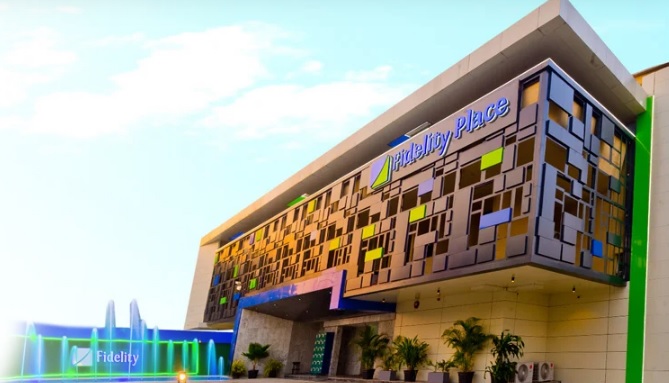
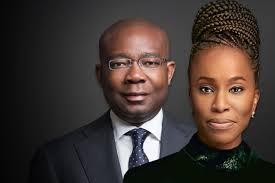
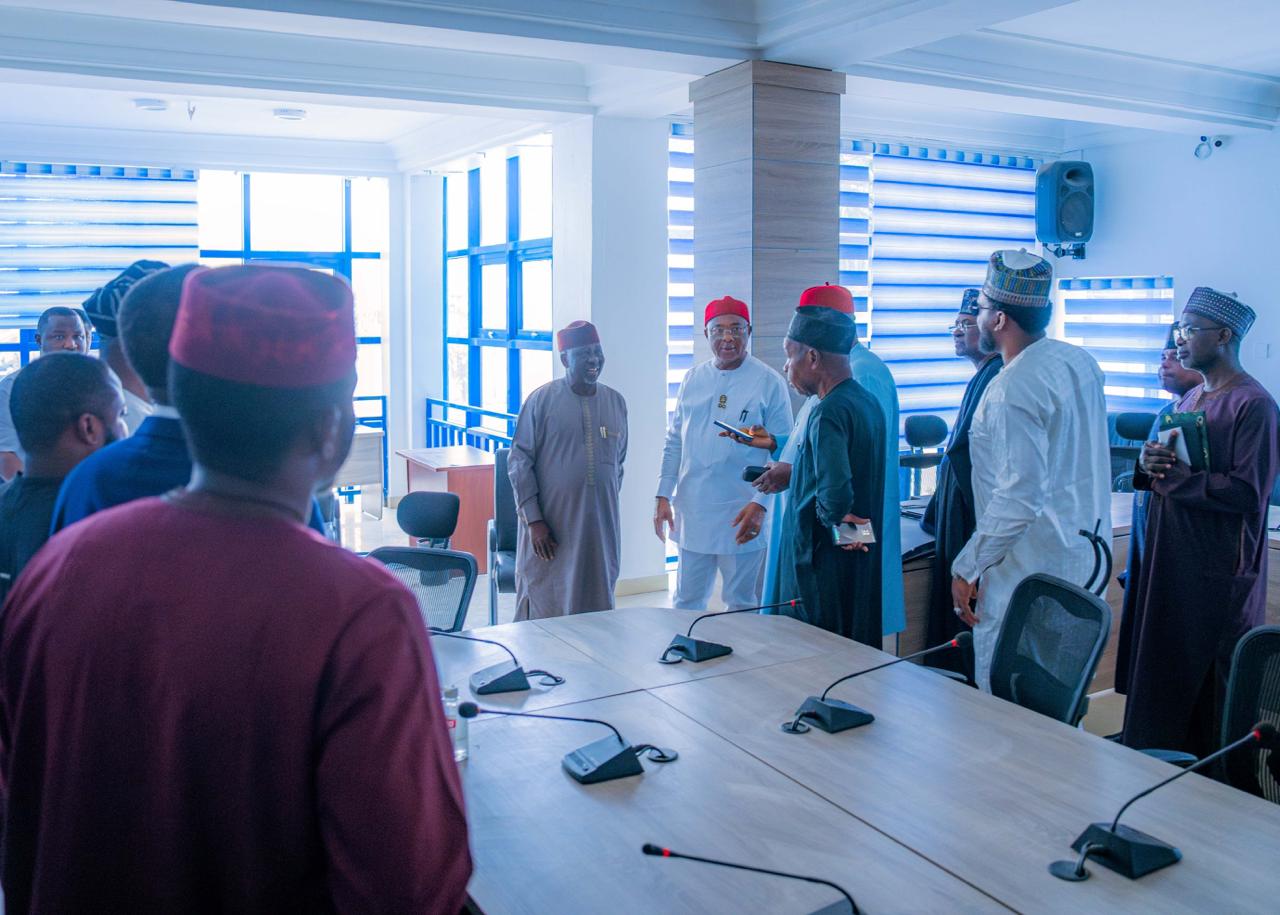


 celebrity radar - gossips7 months ago
celebrity radar - gossips7 months ago
 society5 months ago
society5 months ago
 society7 months ago
society7 months ago
 news3 months ago
news3 months ago



